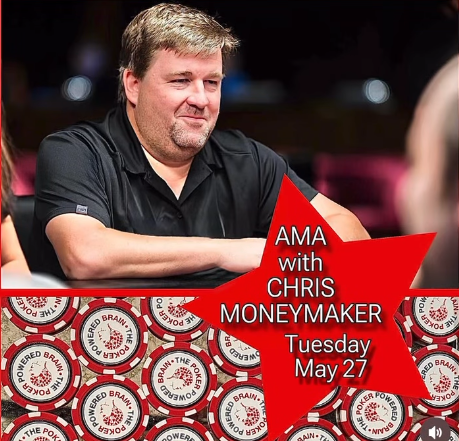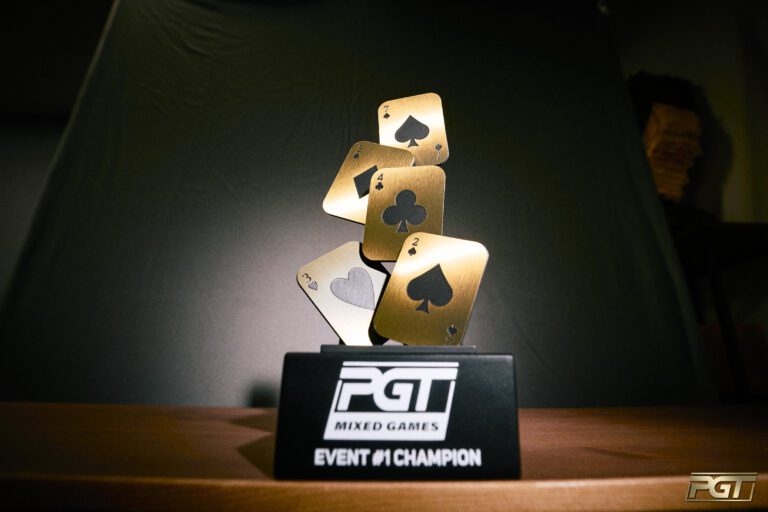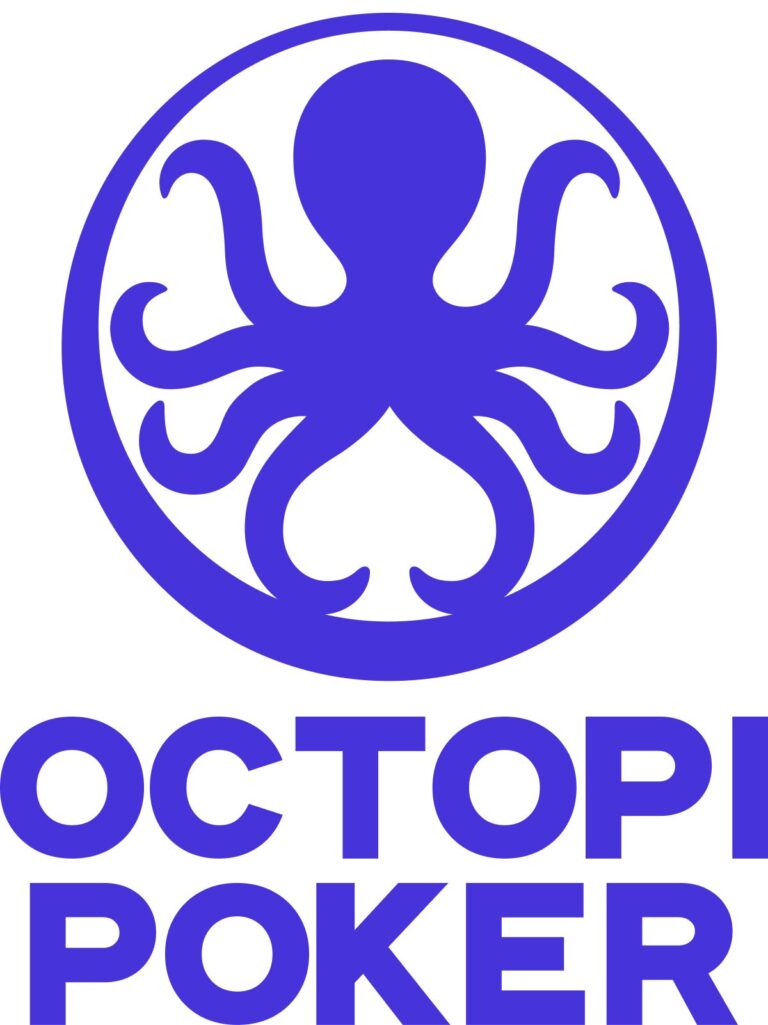Back in 2003, Chris Moneymaker didn’t just win the World Series of Poker Main Event — he changed the game.
A recreational poker player and accountant out of Tennessee, armed with an $86 satellite entry and a last name that sounded too good to be true, Moneymaker became the face of a poker revolution. His televised run collided with the debut of the World Poker Tour on the Travel Channel — launching poker into living rooms across the globe. By 2009, one in four Americans played poker weekly. And yes, we all remember that call the night World Poker Tour aired: “Fred, turn on the TV! We can see their cards!”
Twenty-two years later, Moneymaker is still here — and sharper than ever.
In a recent live Ask Me Anything (AMA) hosted by Lena Evans, exclusive to members of The Poker Powered Brain group, Chris pulled back the curtain on his mindset, strategy, and evolution as a player. What emerged was a portrait of someone who’s gone from fearless underdog to seasoned player, balancing aggression with emotional discipline.

The key theme? Patience. But not the kind you think.
“Be patient, but be reckless at the same time.”
It sounds like a contradiction, but that paradox sits at the heart of high-level tournament poker. Chris clarified that patience is not about folding into oblivion and waiting for aces. It’s about waiting for the right opportunity — then pulling the trigger without flinching.
Patience Is a Skill, Not a Personality Trait
Chris admitted he had zero patience when he first started playing. Like many of us, he learned the hard way — dumping chips, making desperate moves, and letting emotion override strategy.
“Patience is something you learn after you’ve lost your stack.”
That hit home for everyone on the call. Especially for players who feel like their biggest leak is doing something after folding for too many orbits. Chris warned against assuming your opponents are tracking your image the way you are.
“Most players aren’t paying that much attention. You’re thinking, ‘I’ve been tight, they’ll give me credit,’ but they’re thinking about dinner.”
It’s not about what you’ve done — it’s about what they’ve noticed.
Adapting to the Field in Real Time
Tournament poker is fluid. Stack sizes, table dynamics, player types — they shift constantly.
“Every table is unique. Every hour, the game changes.”
Chris emphasized that adjusting to that change is non-negotiable. Whether you’re deep in a Triton event or grinding a WSOP Daily Deepstack, your ability to shift gears will determine how far you go.
Short-stacked? Get comfortable making moves with hands like 8♦9♥ or T♠J♠ when the moment’s right — especially against a chip bully opening 80% of hands.
Big stacked? Loosen up selectively. Apply pressure. Open your hand ranges. Recognize when opponents are too soft or waiting for min-cash territory — and pounce.
“If you’re not changing your game, you’re falling behind.”
Bounce-Back Power: Dealing With Card Dead Runs
What if the cards don’t show up?
Chris shared that being “card dead” doesn’t mean being powerless. He once stole a pot with 8♣2♦, not because he had a hand, but because he had information. He’d watched the table. He’d listened. He made a move when the moment was right.
“Play a game in your head — try to put people on hands. Keep your mind active. Stay present.”
This mental discipline separates pros from recreational players. You may be holding rags, but you’re not folding your awareness.
And when the pain hits — like bubbling a major event — he offers this advice:
“If a bad beat ruins your week, maybe poker isn’t for you.”
Studying, Evolving, and Getting Humbled
Despite his iconic status, Chris admitted he once stalled out.
“I wasn’t studying. Everybody passed me by.”
Then came a humbling hand online. He held A♠K♠ and ran into Q♣5♣ played by Shaun Deeb. Chris won the hand — but the lesson stung. He realized his 3-bet range was too narrow. His call range? Even tighter.
“I’d never even heard of concepts like 3-bet frequencies. I had to relearn.”
And he did. With coaching, data, and self-review, he got back to the grind. His recent win in the May 13, 2024 Triton Poker $25K GGMillion$ Live event in Montenegro proved it. He topped a field of 163 entries and walked away with $903,000 — the third-largest score of his career.
Show me the Money(maker)! @CMONEYMAKER takes the maiden title at the Triton Poker SHRS Montenegro 2024. He bags an eye-watering $903,000 at Event #1 GG Million$ Live $25,000! This will be Moneymaker’s FIRST title at Triton Poker. Congratulations, Chris! 🎊🥂🎊@GGPoker… pic.twitter.com/601tabie1Q
— Triton Poker (@tritonpoker) May 13, 2024
“I made an aggressive play on the bubble with air and got called, leaving me with one big. I had just made a stupid play, and I knew I had seven hands before the big blind. Waiting for an unopened pot, I woke up with a hand. Doubled up to two bigs, then to four bigs. Waiting through the blinds, down to two bigs twice. I ran pure. Started spinning it back up and won the tournament. The old Chris would’ve moved all in the next hand on tilt. But I’ve evolved.”
Now that’s the evidence “a chip and a chair” is a reality!
Stress Tools and Emotional Recovery
To regulate tilt, Chris used a rubber band on his wrist for a year. Any time he was about to make a dumb play — snap. Over time, he added breathing: inhale 4, hold 4, exhale 4. He closes his eyes. Resets.
“If you’re not controlling your emotions, you’re leaking chips — even when you’re not in a hand.”
His recovery time has shortened. Busting the Main Event used to wreck him for days. Now?
“Give me two hours. I’ll be fine.”
This emotional agility — this MindShifting™ practice — is the new edge in tournament poker.
What Tournament Players Need to Hear Right Now
Whether you’re chasing your first WSOP bracelet or just trying to ladder up in daily events, Chris Moneymaker’s evolution offers a roadmap:
- Don’t wait to sneak into the money. Look to accumulate — especially when others are playing scared.
- If you’re card dead, stay engaged. Read the room, not just your cards.
- Aggression without awareness is recklessness.
- Awareness without action is stagnation.
- Patience is powerful — but only when paired with the courage to act.
“You have to be able to bluff off your stack — and still feel good about yourself the next morning.”
That’s a different kind of win. And it’s one most players never learn.
The game has changed since 2003. So has Moneymaker.
And if you’re still playing the same way you did back then — maybe it’s time you changed, too.
Ed. note: Be sure to buy The Poker Powered Brain, which will grant you access to the group’s exclusive AMAs featuring noted poker personalities like Chris Moneymaker, Linda Johnson, Lara Eisenberg, and more. For more information about the book, you can check out our review here.







